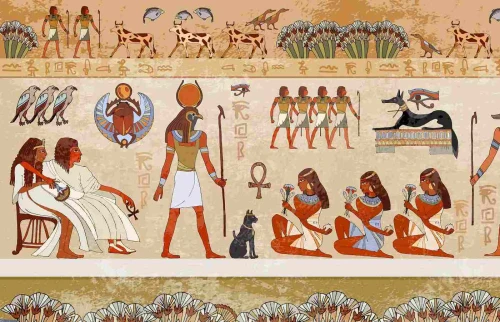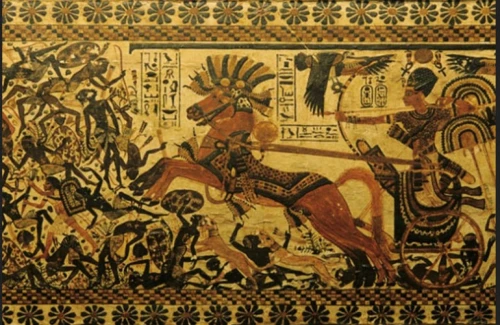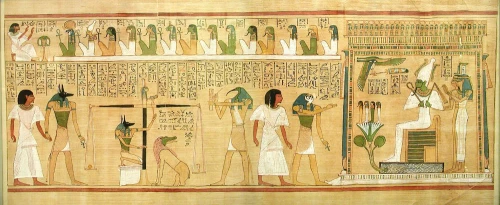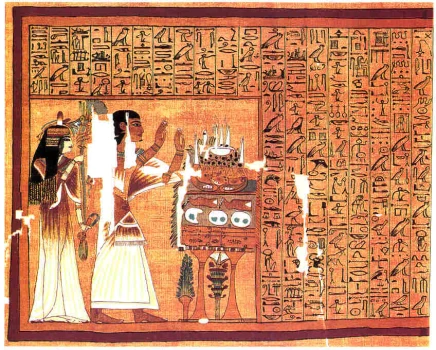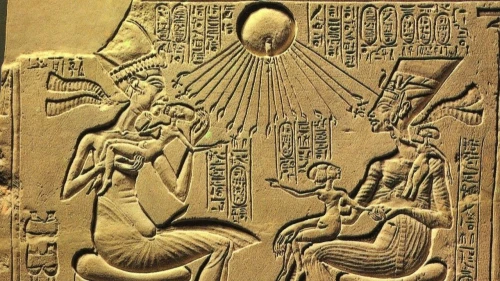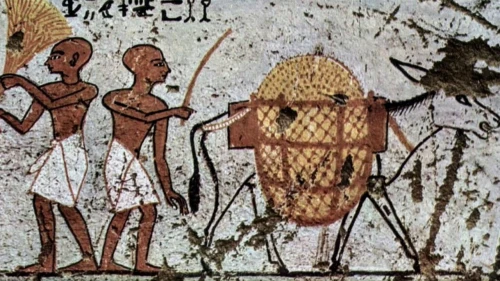
ELOQUENT PEASANT, TALE OF THE Inscribed in four Middle Kingdom (2055–1650 B.C) papyri, the Tale of the Eloquent Peasant is a classic in ancient Egyptian literature. It is the story of Nemtynakht, the corrupt son of a local official who calls upon the gods to give him a potent vision so he can steal a peasant's donkey and all the goods it carries, and the good peasant who seeks justice. As the peasant and his donkey approach, Nemtynakht places a length of linen across the narrow road so the fringe touches the water on one side and the hem touches the field of barley on the other side.
Then he shouts at the peasant not to ruin his clothes. As the donkey moves to avoid the linen, he comes close to the field and takes a mouthful of barley. Nemtynakht shouts that he will seize the donkey and all the goods it carries in payment for its having eaten one mouthful of grain. He beats the peasant and sends him on his way.
When the peasant approaches the high steward, Remi, to beg for justice, his words are eloquent. He begins, Oh high steward, my lord, Greatest of the great leaders of all! you are father to the orphan Husband to the widow Brother to the rejected woman. He points out that the steward is like a father who looks after his family. So, to make amends, the steward gives the peasant 10 loaves of bread and two jugs of beer, but his donkey and goods are not restored to him.
Over time, the peasant makes nine petitions to the authorities, each time pleading for the return of his donkey and goods. At first, they are delighted with his eloquent words, and even the king hears the peasant petition. But the officials eventually tire of him and remind the peasant that they have given him bread and beer, and his wife and family have been sent food, and that is his repayment. But still, he persists. In the seventh petition, the eloquent peasant says: My lord is patient, so that a man may invoke you about his rightful cause. Don't be angry; it is not for you. The long face becomes a short temper. Don't brook on what has not yet come, nor rejoice at what has not yet happened, Each time the peasant makes a petition, his speech is more eloquent than before. But after the ninth petition when justice is not served, he says, I have pleaded my case with you and you have not listened. I shall go and plead about you to Anubis! (god of the cemetery and embalming).
Since the officials will not grant him justice, the peasant asks a God to intervene on his behalf. As the unhappy peasant walks away, the steward Rensi has a change of heart perhaps the gods have intervened. Calling for the peasant to come back, he tells him not to be afraid. The steward Rensi calls for the petitions and reads them aloud before the king, who praises the eloquence of the peasant and orders his donkey and goods restored.
 English
English
 Spain
Spain

